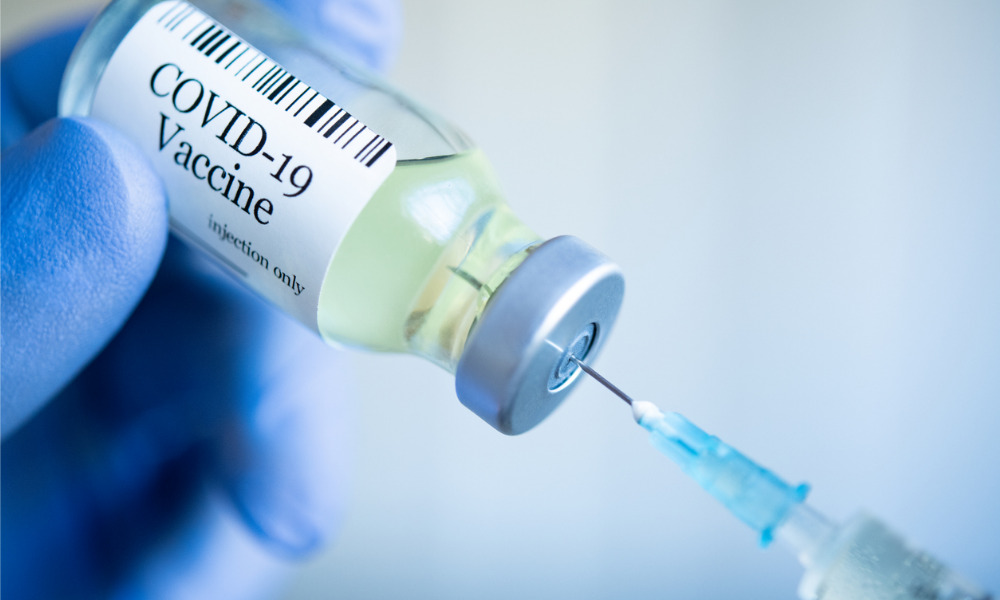According to the findings, the COVID-19 vaccination in Borno is currently experiencing a significant setback due to a lack of timely payment of allowances to health workers/vaccinators.
Borno is one of the states in the country with the fewest people who have received the COVID-19 vaccine.
Only 6-7 percent of the state’s eligible population has been vaccinated with the vaccine thus far.
Some of the vaccinators interviewed by our state correspondent expressed dissatisfaction with the lack of timely payment of their allowances, particularly those paid by the federal government.
COVID-19 vacciners in the state are divided into two groups, according to the findings. Development partners pay one category, while the federal government pays the other.
However, further investigation revealed that those who are paid by the federal government do not receive their allowances on time. They don’t get their allowance for another three to four months.
Read Also: NCDC confirms 66 suspected cases of monkeypox, one death
A visit to some vaccination centres in the Jere local government area and the Maiduguri Metropolitan Council (MMC) of Borno state revealed that most vaccinators do not go to the vaccination sites on a daily basis due to a lack of transportation funds.
“We are having problems with our vaccinators because they don’t come everyday for the vaccination exercise,” a senior health official in the state said, requesting anonymity because she lacks the authority to speak on the subject. You can’t blame them, though, because how can someone work for three months or more without being paid? The majority of them are job applicants or university students who are currently on strike and are doing this impromptu work in order to get paid. How can you expect them to get to the clinic to get vaccines and then to the vaccination sites if you don’t pay them on a regular basis?
“Those who are paid by partners do not have any problems because they receive their allowances on time. Those who are paid by the government, on the other hand, are having difficulty returning to work on a daily basis. The state’s COVID-19 vaccination programme has been severely hampered as a result of this.
As a result, she requested that the federal government consider paying the allowances as soon as possible so that the vaccinators can focus on improving vaccine uptake in the state.
“I only got my allowance once this year,” one of the vaccinators at one of the Clinics in Maiduguri Metropolitan Council said when responding to questions from our correspondent. Because we don’t always have transportation to work, this has a significant impact on us.
“Yes, this is affecting vaccination coverage because how can you expect someone to come every day after working for months without pay?” The government should help us by regularly paying our allowances.”
Dr. Clement Adams, the Health Manager at the United Nations Children Fund (UNICEF), Borno office, responded to the alleged delay in the payment of allowances for COVID-19 vaccinators by urging vaccinators across the state to be patient because the delay is due to bureaucratic bottlenecks.
“I’m not on the government’s payroll, and I’m not on anybody’s payroll.” However, money isn’t always enough to solve our problems.
“Yes, money is a problem. It’s not just about availability, but also about release and timeliness.
“The funds may be available, but the procedure and bureaucracy involved in releasing them will cause delays.” People often misinterpret these delays as a result of administrative red tape that must be cleared before funds are released to pay employees.
“As a result, bureaucracies can sometimes stall the release of funds.” It’s all about how bureaucracies have been interpreted. However, the punctuality with which you pay is crucial.”
The UNICEF Health Manager, while urging all relevant bodies and government officials involved in the payment of vaccinators to ensure timely release and prompt payment, also urged Nigerians to see the work as a sacrifice they are making for humanity.
“We want to reassure everyone involved in all of this that punctuality in the distribution of funds is critical.” If that isn’t done, the timeliness with which you explain is also crucial.
So, we may believe that the money is available but that it is being held by the government, but it is very likely that it is not.
“Sacrifices are sometimes necessary.” Let us all agree that this is a matter of humanity, and that we want to save lives. Allow us to be patient at times when we are attempting to push ourselves too far.
Read Also: Breaking: Methodist Church Prelate, Uche, 2 others abducted in Abia
“I’m not saying people shouldn’t be paid; I’m just saying that patience is essential when it comes to following these things.” We are saving lives. Everything else is secondary to life. We must exercise patience because certain administrative processes and procedures are inefficient.
“As a result, patience is required.” When you consider the magnitude of the task at hand, it’s impossible to say that money is simply being laid down. Some of these funds are in transit, causing problems with bank transfers, and other times they are causing problems with the bureaucracy.
“However, we want to encourage people to address any shortcomings that they may have so that we can collaborate and see how we can assist.”

